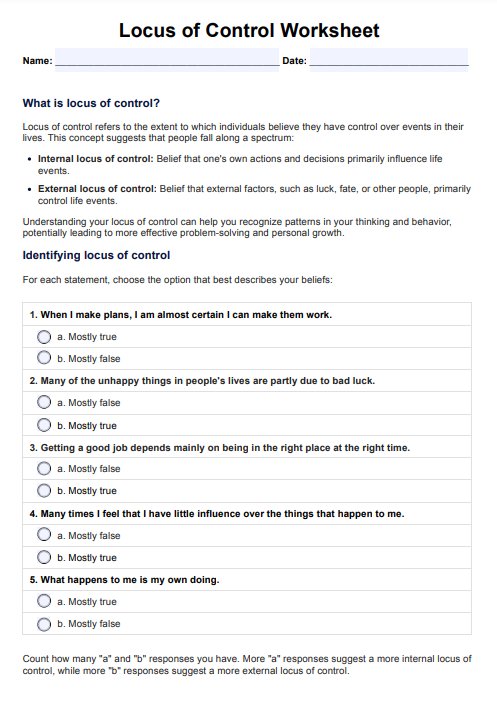Locus of control refers to individuals' beliefs about control over events in their lives. This self-awareness can be internal (believing in personal control) or external (attributing control to external factors).

Locus of Control Worksheet
Download a free Locus of Control Worksheet PDF to help clients identify perceived control and understand their patterns.
Locus of Control Worksheet Template
Commonly asked questions
An individual can assess their locus of control through questionnaires like Rotter's Internal-External Control Scale. They can then reflect on whether they attribute life outcomes to their own actions (internal) or external factors (external).
Locus of control is linked to attitudes, behaviors, and overall well-being. Internals tend to be more proactive, confident, and achievement-oriented, while externals may experience stress and feelings of helplessness. Understanding one's locus of control can aid personal development and self-awareness.
EHR and practice management software
Get started for free
*No credit card required
Free
$0/usd
Unlimited clients
Telehealth
1GB of storage
Client portal text
Automated billing and online payments











